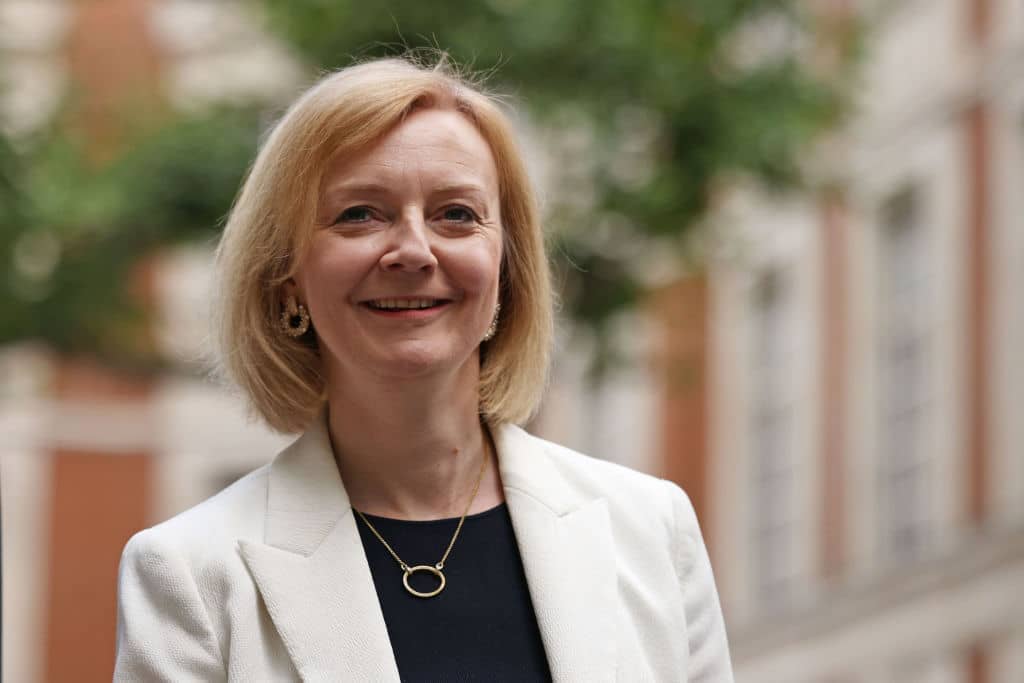One of the key dividing lines of the current Tory leadership contest concerns economic policy. The gap between the candidates is not actually very large, but of course political arguments often magnify small differences. And in this case there quite an important philosophical difference that could have significant consequences over the longer-term.
Broadly speaking, Rishi Sunak is the candidate of economic continuity – how could he be otherwise, given that until a couple of weeks ago he was in charge of economic policy as Chancellor of the Exchequer. His plans involve large tax rises. Even before inflation raced ahead of expectations his plans scheduled the total tax rate rising to its highest level since 1948. He says he does want to cut tax eventually, but as Chancellor we saw that he committed to high spending levels.
Inflation has flown way ahead of expectations since Sunak set his plans last October. At that time he was only expecting CPI inflation to reach 4.4 per cent. Now it’s expected to reach 11 to 12 per cent and to stay elevated for longer. That means there is a lot of additional unexpected tax revenue coming in, since higher inflation means more people get dragged up into higher income tax bands and corporate tax and VAT receipts are higher. The consequence is that there is about £60 billion in ‘fiscal headroom’.
If Truss’s plan is irresponsible with inflation, then presumably Sunak’s 2021 Budget must have been even more so
Sunak already knew there was some extra headroom in March, at the time of his Spring Statement. He used it to fund extra spending to help mitigate the impacts of high inflation. As for controlling inflation itself – well, as Chancellor he was pretty clear that he thought that was nothing to do with him. He never once admonished the Bank of England for failing to meet the inflation targets he set. He didn’t modify his targets to something realistic that he said would be enforced for 2022 or 2023. And he didn’t produce any general anti-inflation policy of the sort other governments with more independent central banks than the Bank of England have adopted – for example in the US.
Suddenly, now, however, he is seeking to paint himself as the anti-inflation candidate and accuses his opponent, Liz Truss, of ‘fairytale economics’ and of being weak on inflation. His plan appears to be to use the entire additional tax revenue that inflation is drawing in to get the tax level even higher, dropping the deficit more rapidly than he previously intended. Truss’s plan includes using the fact that tax revenues are now higher than expected to cancel some of the previously-scheduled tax rises (NI and corporation tax), along with temporarily suspending some of the green levies driving up household energy costs, taking us back closer to Sunak’s original plans. If Truss’s plan is irresponsible with inflation, then presumably Sunak’s 2021 Budget must have been even more so.
Truss’s starting point is rather different from Sunak’s. She says that GDP growth has been unacceptably low in recent years and that we should not simply accept that as a fixed reality and be content to see taxes rise ever higher relative to GDP in a desperate and doomed attempt to fund public services. Instead, she says, we need economic reforms to try to get GDP to grow faster. She wants to change the mix of taxes to try to make tax more optimal, which might speed growth. She wants to review how we meet our green targets, with a view to using more fracking in the short-term to enhance our energy security and avoiding the trap of making our economy greener only by making our growth much slower. She wants to get public spending under better control. And she wants to review the mandate of the Bank of England to see whether its management of inflation could be improved.
She says that allowing taxes to rise even more rapidly than scheduled, as Sunak plans, risks creating a recession. Sunak says not letting them rise as intended means the Bank of England will need to raise interest rates by more, to counter inflation. They are both right. But higher interest rates is precisely what we want. One of the key factors explaining that persistent low growth that disturbs Truss is that interest rates have been kept far too low for far too long. They were taken to an emergency level near zero at the time of the Great Recession in 2008-09. And the Bank of England has never found it convenient to normalise them back to the 4 to 5 per cent level that was typical over the 15 years before that. Excessively low interest rates damage long-term growth by reducing the financing pressure on firms to add value.
We need tighter monetary policy. That is the right way to counter inflation. It is also part of the answer for getting the economy to grow more rapidly over the longer-term.
Truss’s plan involves slightly looser fiscal policy than Sunak’s (though still tight), and as a consequence will involve slightly tighter monetary policy. That is the correct mix at present. Both of them propose tightening fiscal policy, but Sunak’s involves fiscal overkill that might create a recession and thus mean the Bank of England does not raise interest rates as much as would be healthy.
It is not controversial amongst economists that monetary tightening, not fiscal tightening, is the most effective way to control inflation. Truss’s policy is not ‘fairytale economics’ or ‘weak on inflation’. It is the right policy mix for now and for the longer-term.






Comments